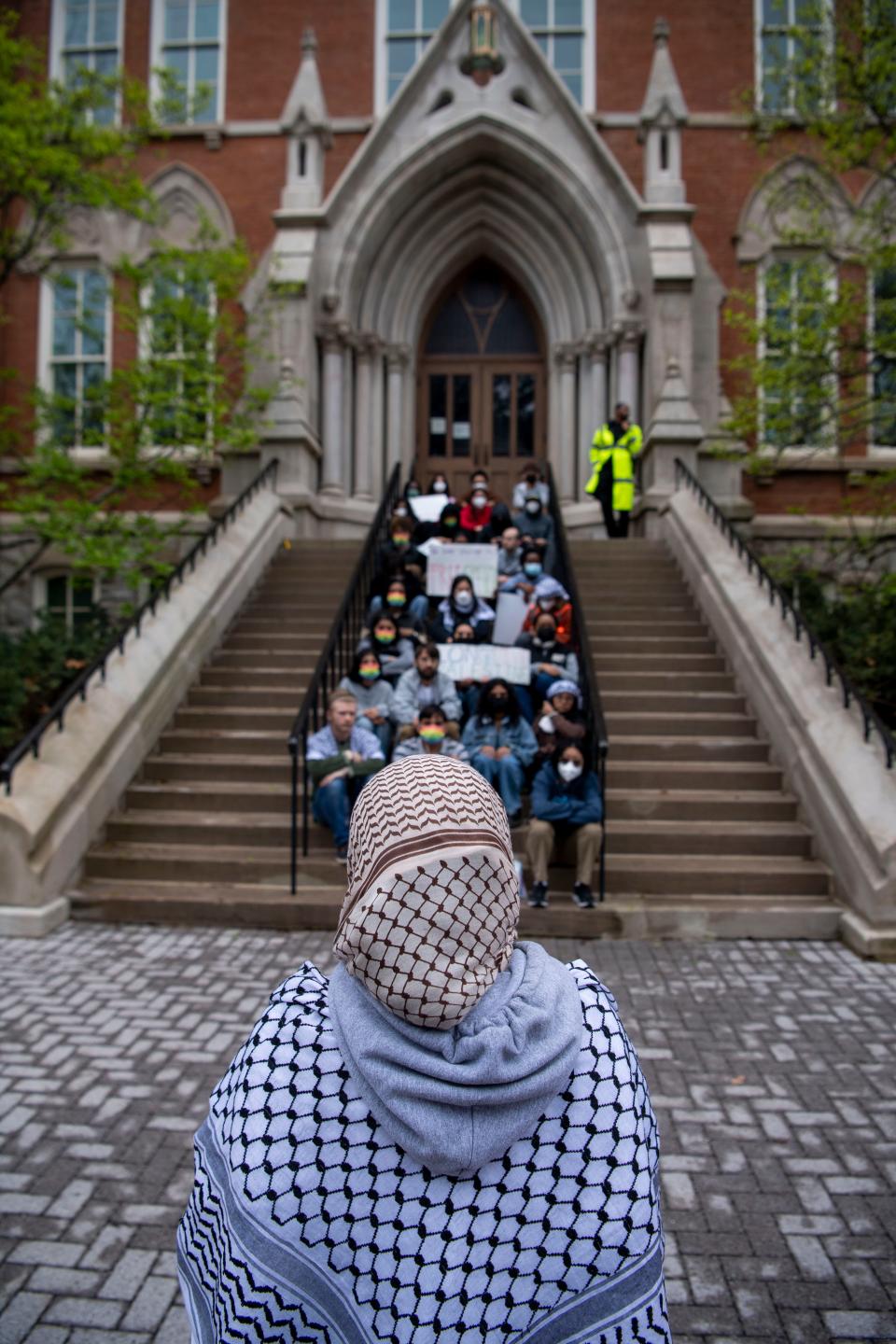As a Vanderbilt alum, I am angry, but not surprised, about the recent student expulsions
Vanderbilt University does not care about student safety; the institution and its trustees care about profits and rankings.
This was a truth I knew intimately while an undergraduate, from 2014-2018, under Chancellor Nicholas Zeppos.
It has become increasingly apparent that the current Chancellor, Daniel Diermeier, prioritizes profit over student safety even more than Zeppos, putting current students in increasingly unsafe circumstances while penalizing the students who push for a more just university.
Never has this been clearer than with the recent decision to expel three students and suspend a fourth after their participation in the March 26 student sit-in.
The students spent 21 hours in Kirkland Hall, demanding Vanderbilt’s administration allow the student body to vote on a divestment resolution in the Vanderbilt Student Government (VSG), joining a long tradition of student protests in the hall fighting for racial justice, equity, and a better Vanderbilt.
Another view: Will recent protest let Vanderbilt silent majority of students finally feel enfranchised?
Vanderbilt was swift to act on student protesters
These expulsions and suspensions express Vanderbilt’s priorities: keep donors happy regardless of what keeps students safe.

This is particularly concerning to me, not just because of the potential lifelong academic, personal, and economic ramifications that the expelled and suspended students will experience, but also because it lays clear that Vanderbilt can quickly and easily penalize students when motivated to do so.
As an alumnus who spent years on campus advocating for justice for survivors of sexual violence, this is a slap in the face.
For years and in my experience, Vanderbilt has claimed that in cases of reported sexual violence, the administration must move slowly to gather evidence in an unbiased manner.
For the students who were suspended and expelled this month for a peaceful sit-in, that process took a fraction of the time that under even their own standards cannot be considered unbiased. This incident has shown that Vanderbilt could protect survivors of sexual violence with the same swift action they reserve for protecting their property and donations – they simply choose not to.
Where is the due process for students?
I worry that to those who have never experienced Vanderbilt’s campus, who have never attended the University, this may seem like the conflation of two separate issues. It is not.
Students have long been demanding a safer campus, taking the lead on changing university policy to protect survivors of sexual violence.
Vanderbilt has hidden behind purported ideals of due process and fairness, leaving undergraduate students, like myself, to support peers traumatized by seeing the very people who had sexually assaulted them across campus as they waited through the lengthy and statistically unsuccessful Title IX accountability process.
Vanderbilt has made evident that claims of due process and fairness are shields to avoid risking a loss of donations from the parents of students often committing the harm, and to keep Vanderbilt’s reported numbers of sexual violence artificially low to maintain its public reputation, at the expense of the young people the university claims to exist for.
The protesting students deserve to have their punishments overturned. Students have the legal right to protest, and the First Amendment should be applied fairly at Vanderbilt regardless of what Chancellor Diermeier says.

The students took brave steps to make the campus safer for their Palestinian peers - and future students who engage in protest and campus change - and demanded that Vanderbilt divest from supporting the State of Israel, something Vanderbilt should have done long before.
News reports have documented tens of thousands of dead and injured Palestinians and starvation of an entire population.
The rest of us are left to come to terms with the fact that Vanderbilt thinks student safety is less important to protect than its defense of Israeli policies.
Sar Starr (he/they) is a survivor of sexual assault, a social worker, and was the Vanderbilt Sexual Assault Awareness Prevention Committee chair from 2016-2018.
This article originally appeared on Nashville Tennessean: Vanderbilt expulsions expose a pattern of minimizing student safety
